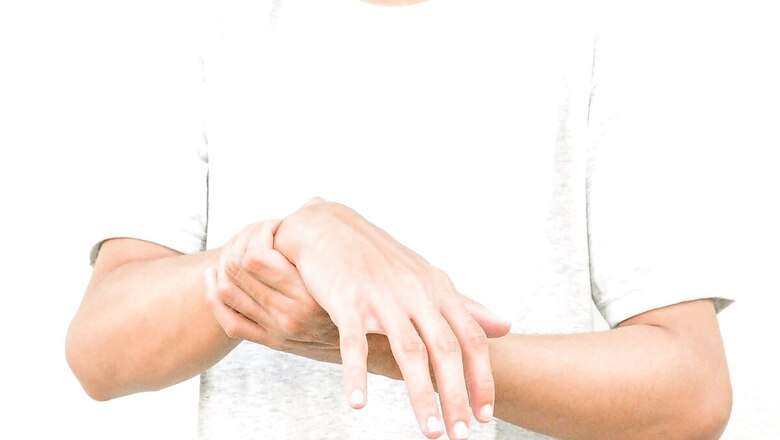
views
Mumbai City is facing an unusual rise in the cases of Guillain-Barre syndrome (GBS), which is a rare autoimmune neurological disorder. In GBS, the peripheral nervous system is attacked by the body’s immune system.
According to a Times of India report, doctors have estimated that the surge in GBS cases is 30-50 per cent higher than what it normally is during monsoon season.
According to Neurologists, there has been a considerable increase in both outpatient cases as well as admissions. For example, the civic-run BYL Nair Hospital has treated over 15 GBS cases in just a month, of which six patients are currently under treatment.
Private hospitals like Andheri’s Kokilaben Hospital and Tardeo’s Bhatia Hospital have each treated more than a dozen cases from the month of July. Other hospitals like Fortis, and Lilavati are at present treating three to five patients each. Several of these patients have also been in need of a ventilator. But, thankfully, none of the hospitals reported any fatalities.
GBS Patients With a Travel History
The exact cause of the surge in GBS cases is unclear, however, doctors suspect that it could be due to the broader rise in viral infections. Reportedly, Dr Rahul Chakor, head of the neurology department at Nair Hospital said that nearly all his GBS patients developed the condition soon after their recovery from a viral or gastrointestinal infection. The rise in cases has affected people of all ages and genders.
Most of the GBS cases follow a viral or bacterial infection, leading the immune system to mistakenly attack the body itself, said Dr Nilesh Chaudhary, a neurologist at Hiranandani Hospital.
Typically, the condition causes muscle weakness, numbness or tingling when the nerves come under attack, and can also progress to paralysis, which will require a longer recovery. Dr Chaudhary said that the surge has become noticeable over the last 30-45 days. To further add to this, Dr Ashish Gosar, a neurologist at Bhatia Hospital said that he also observed that many of the patients of GBS also had a travel history.
Reportedly, several versions of GBS are also being seen by doctors. Dr Gosar said that the presentation of GBS is sometimes atypical, unlike the classic where the weakness starts from the lower limbs and then progresses upwards. Doctors at the Bhatia Hospital said that the severity seems to be present in the cases of younger patients. Those ones with early cranial nerve involvement (difficulty in swallowing, double vision) and upper limb involvement at the beginning of the disorder are rapidly progressing. This pace puts them under a requirement for ventilatory support because of weak respiratory muscles.
At Vashi’s Fortis Hiranandani, Director of Neurology, Dr Pawan Ojha said that they have four critical patients. Two with Acute Inflammatory Demyelinating Polyneuropathy (AIDP) variant and two with severe Acute Motor Axonal Neuropathy (AMAN). In AIDP, there is weakness, tingling, and numbness in limbs which is caused when the protective cover of nerves is affected. In AMAN, nerve signals transmitting long threats, called axons are affected. Ojha said that all of these cases require plasma exchange therapy and mechanical ventilation.
The majority of the patients have come to emergency departments, complaining of weakness, tickling and numbness, said Kokilaben Ambani Hospital’s Dr Tushar Raut. He said that it is important to monitor the breathing, heart rate, and blood pressure of any person suspected of GBS.
Dr Girish Soni of Lilavati Hospital called this surge alarming, saying that it requires documentation as most of the patients recover gradually over six to twelve months. The cost of treatment, as pointed out by Dr Chakor, could be in lakhs in private hospitals especially because each of these patients requires immunoglobulins worth Rs 2-3 lakh on top of supportive therapies. Most of the cases have recovered as well.
There has been a surge in all autoimmune conditions post the Covid-19 pandemic, Dr Chakir said, adding that, if by any chance it is attached to GBS then they will require deeper research.















Comments
0 comment